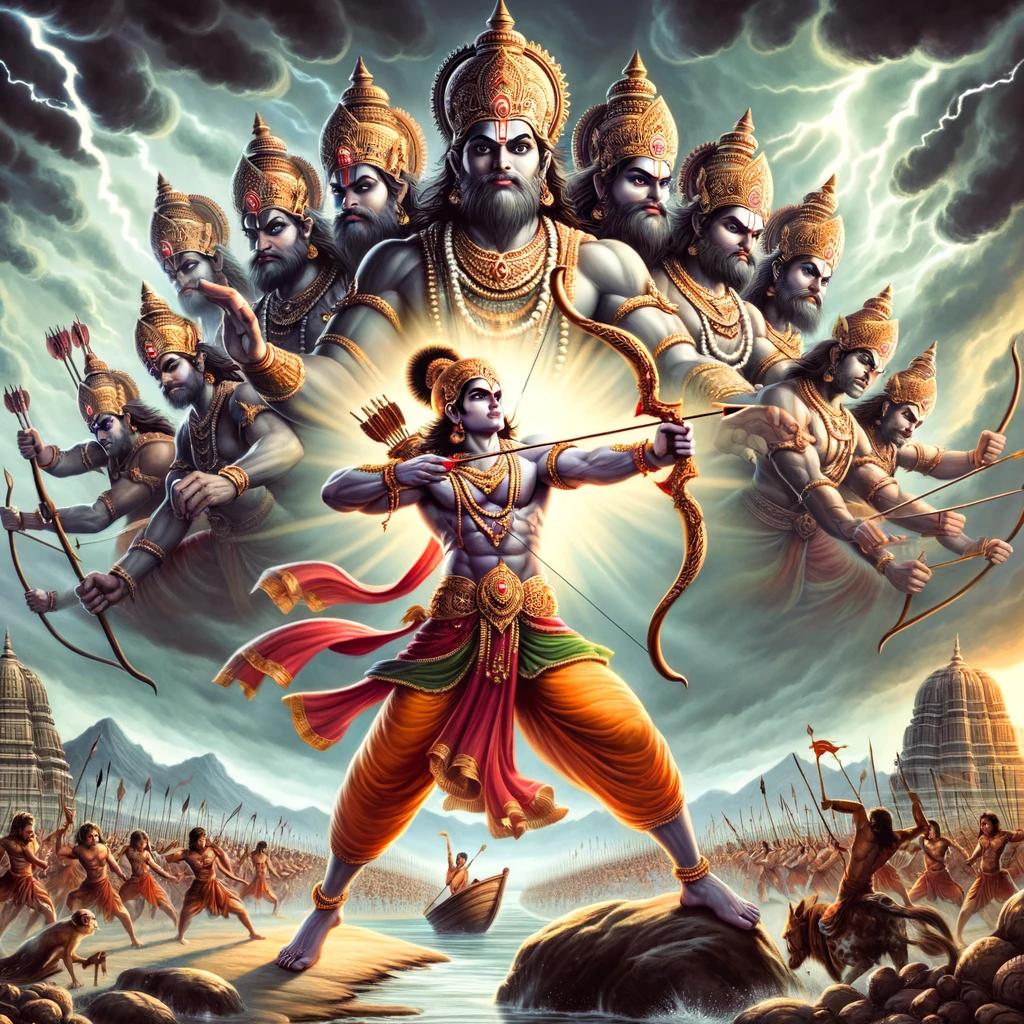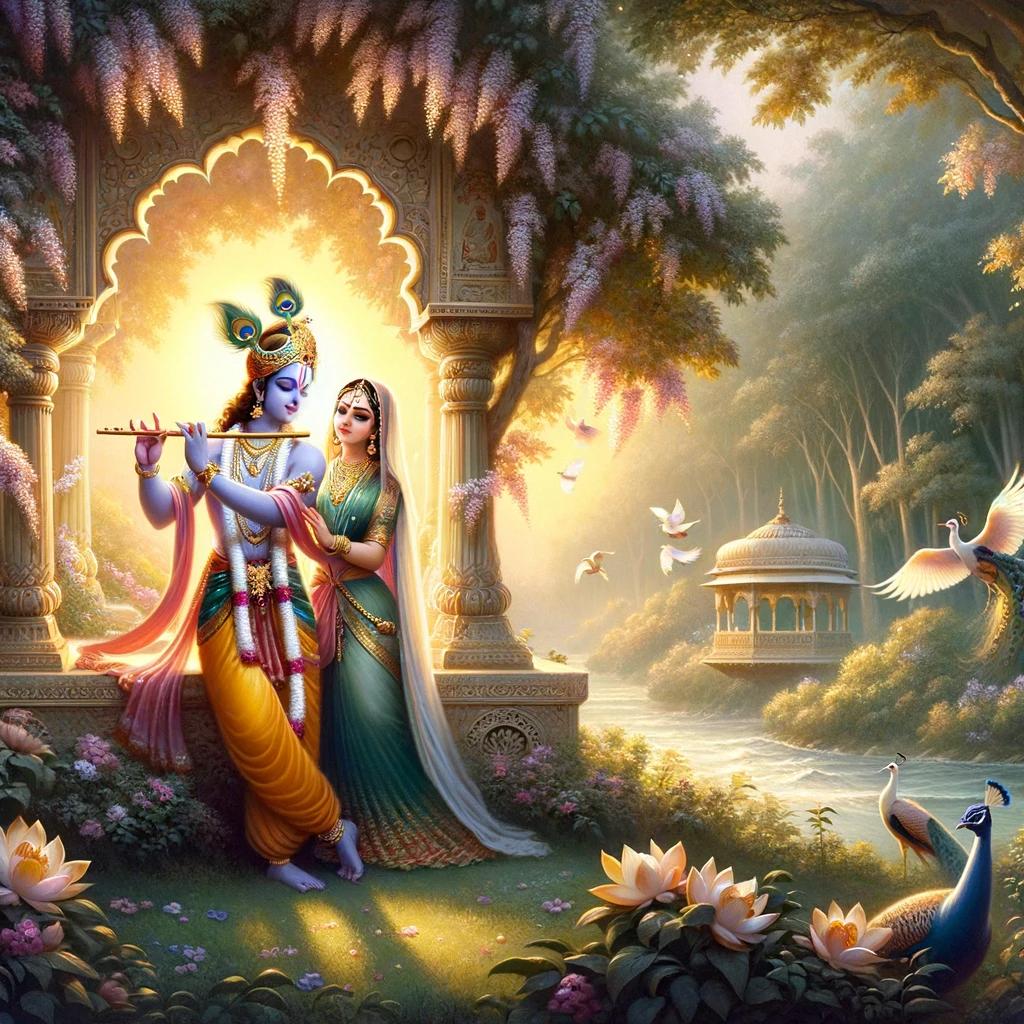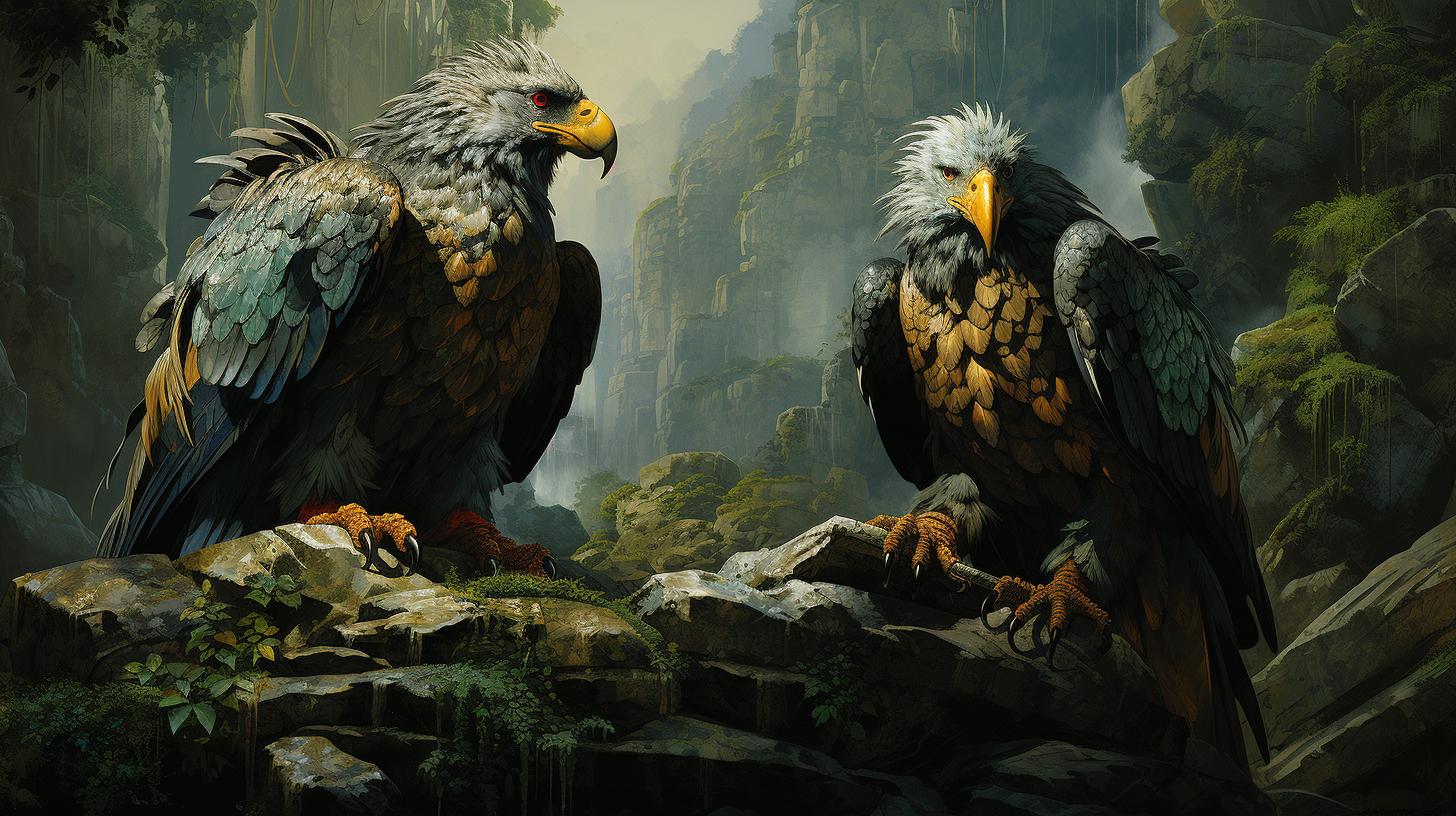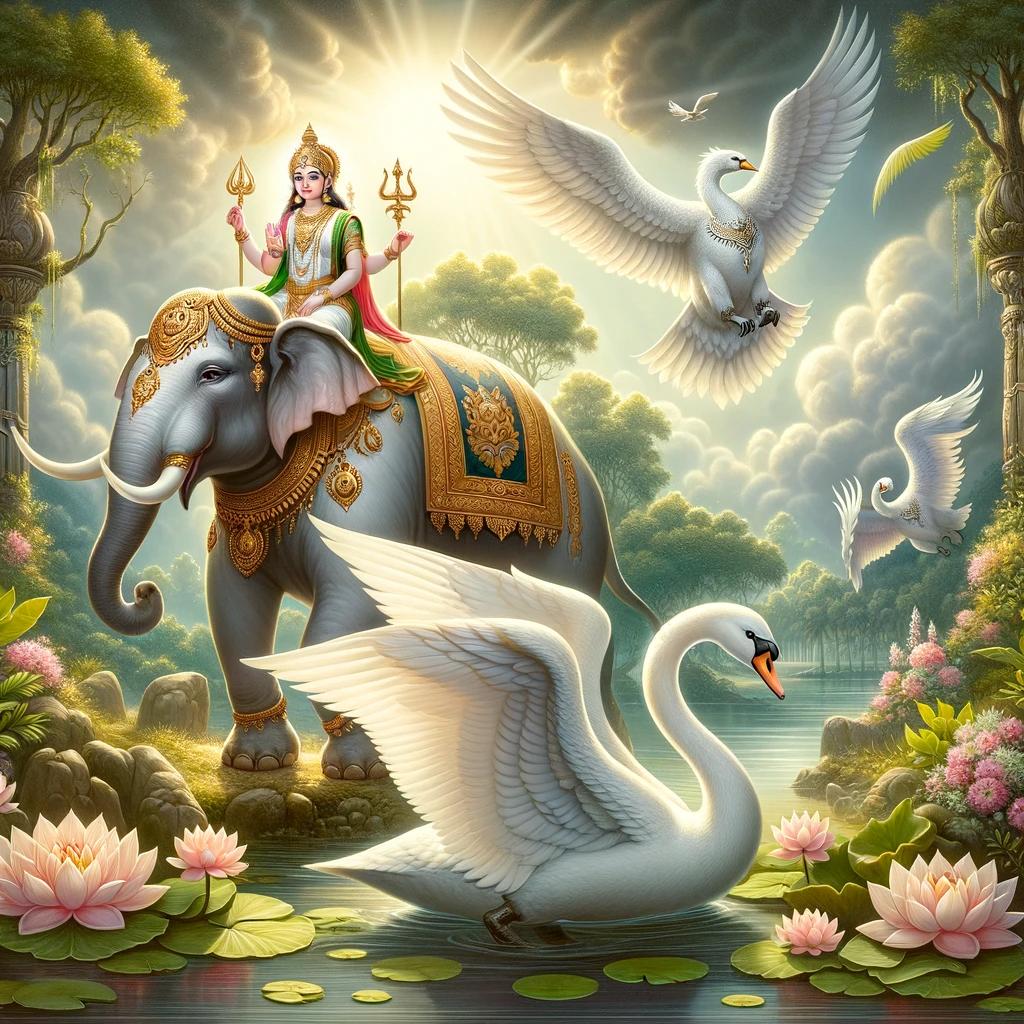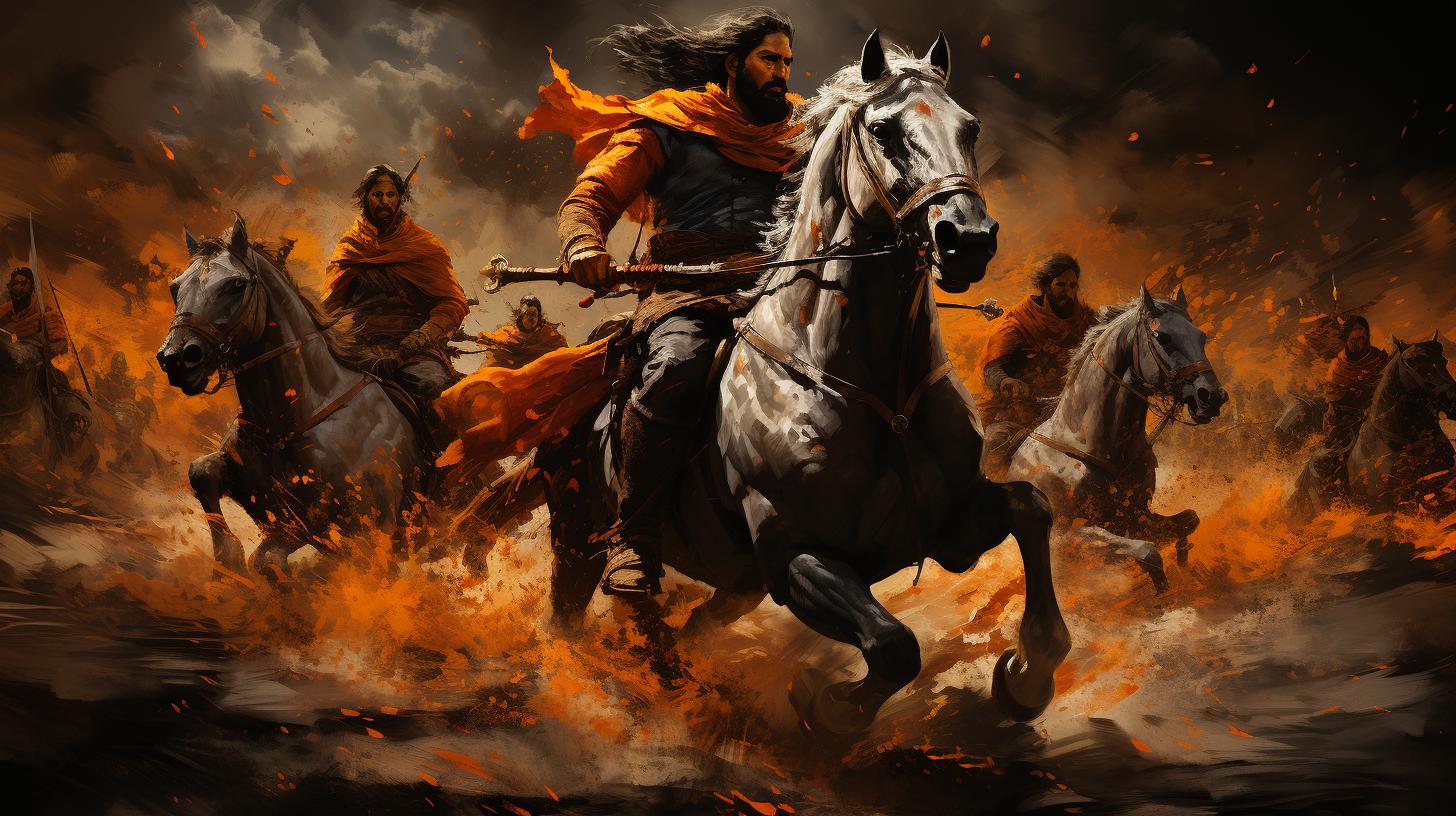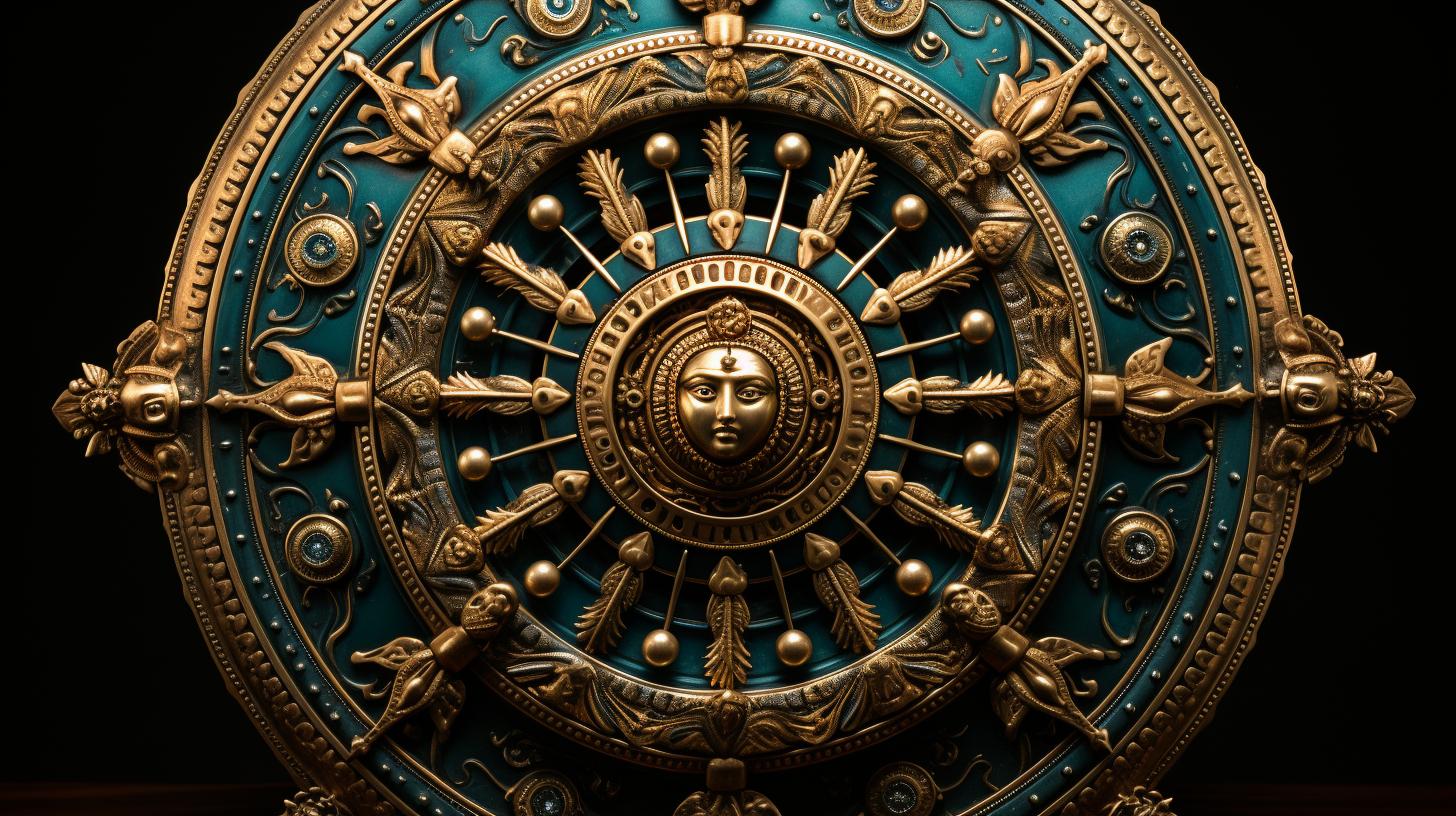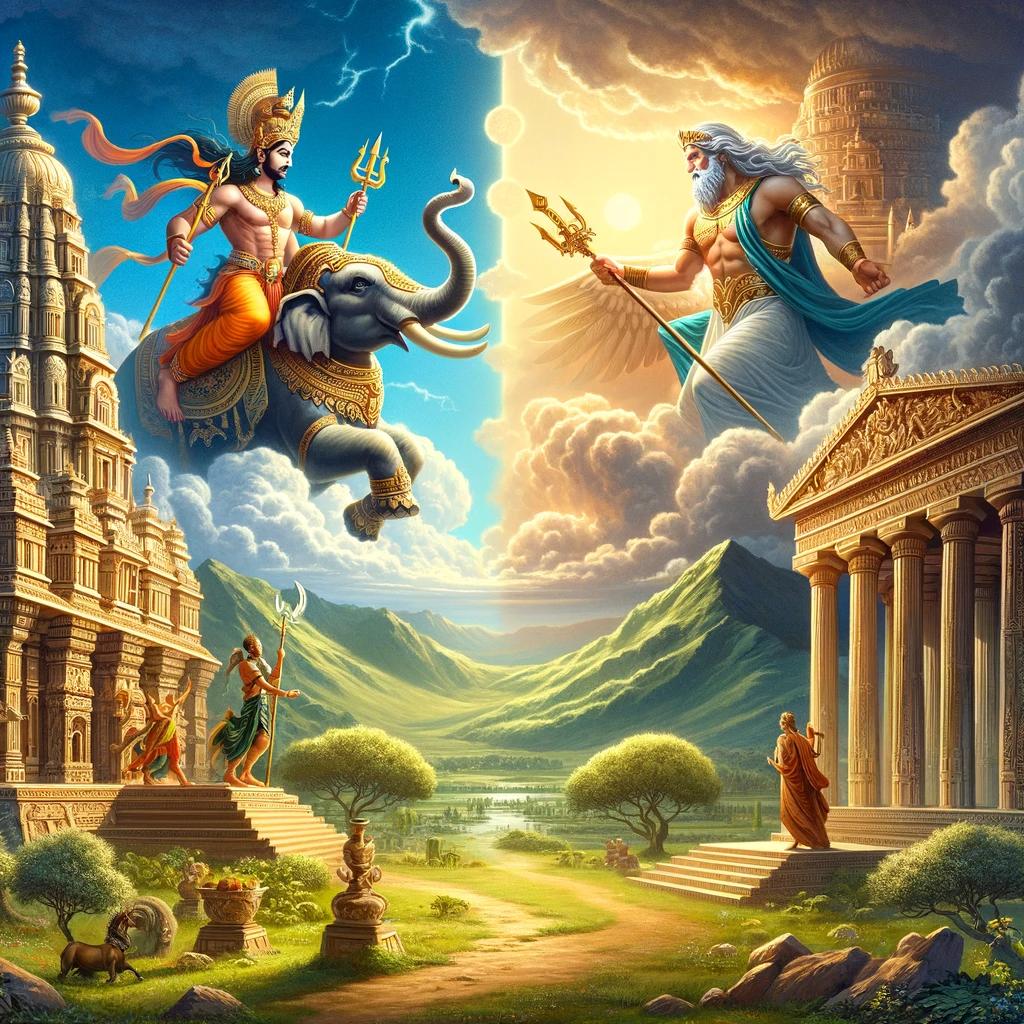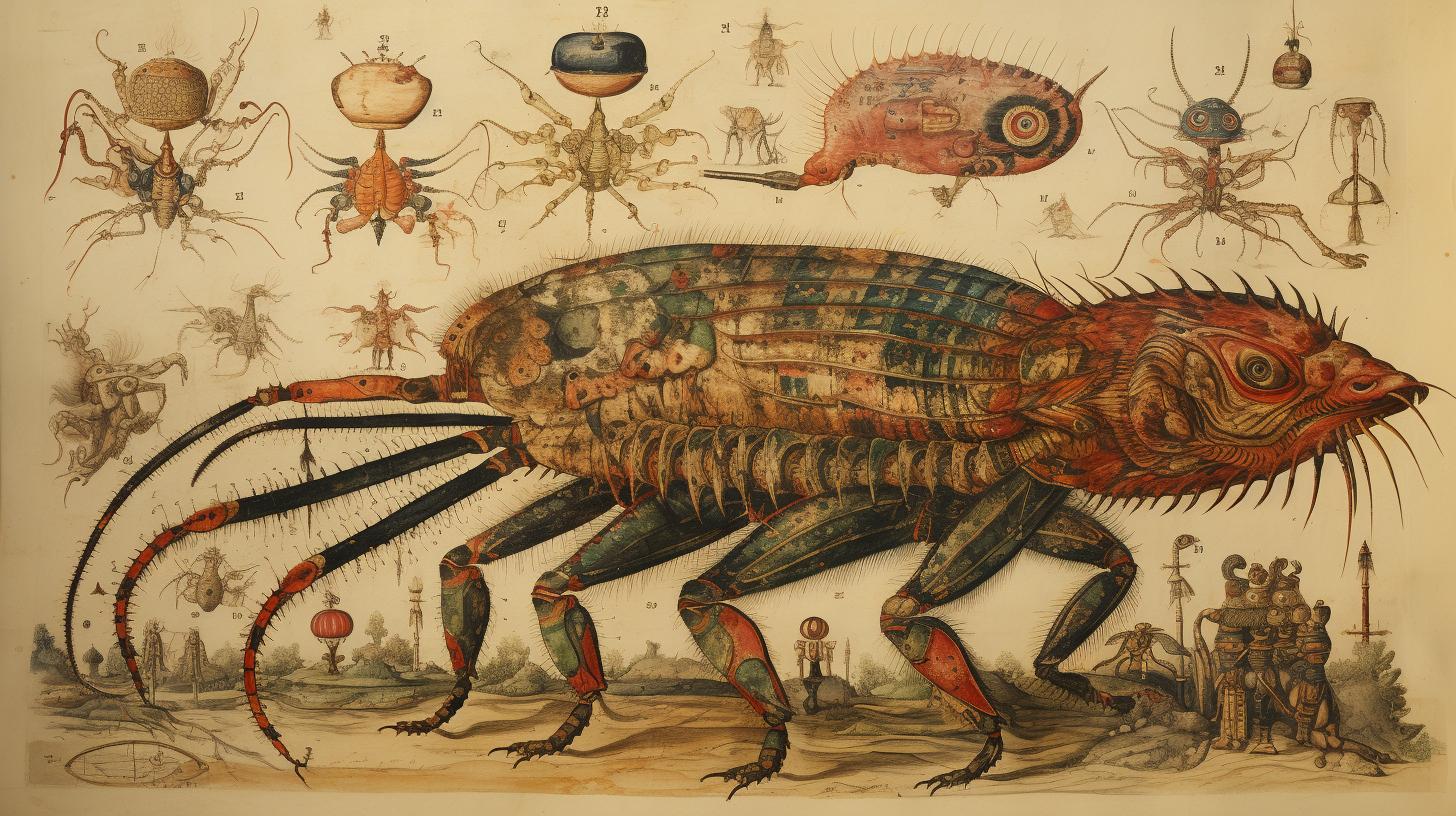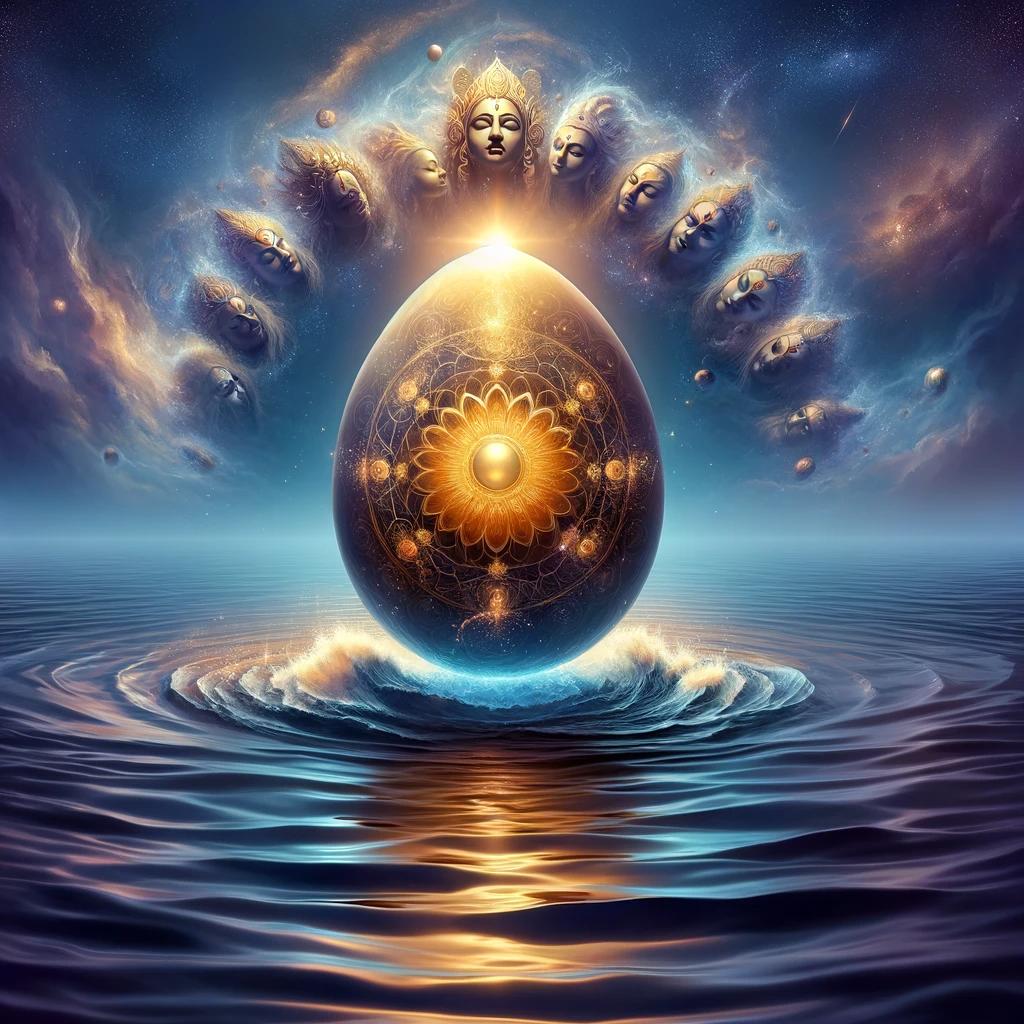Indian Mythology Stories: Exploring the Rich Mythical Tales of India
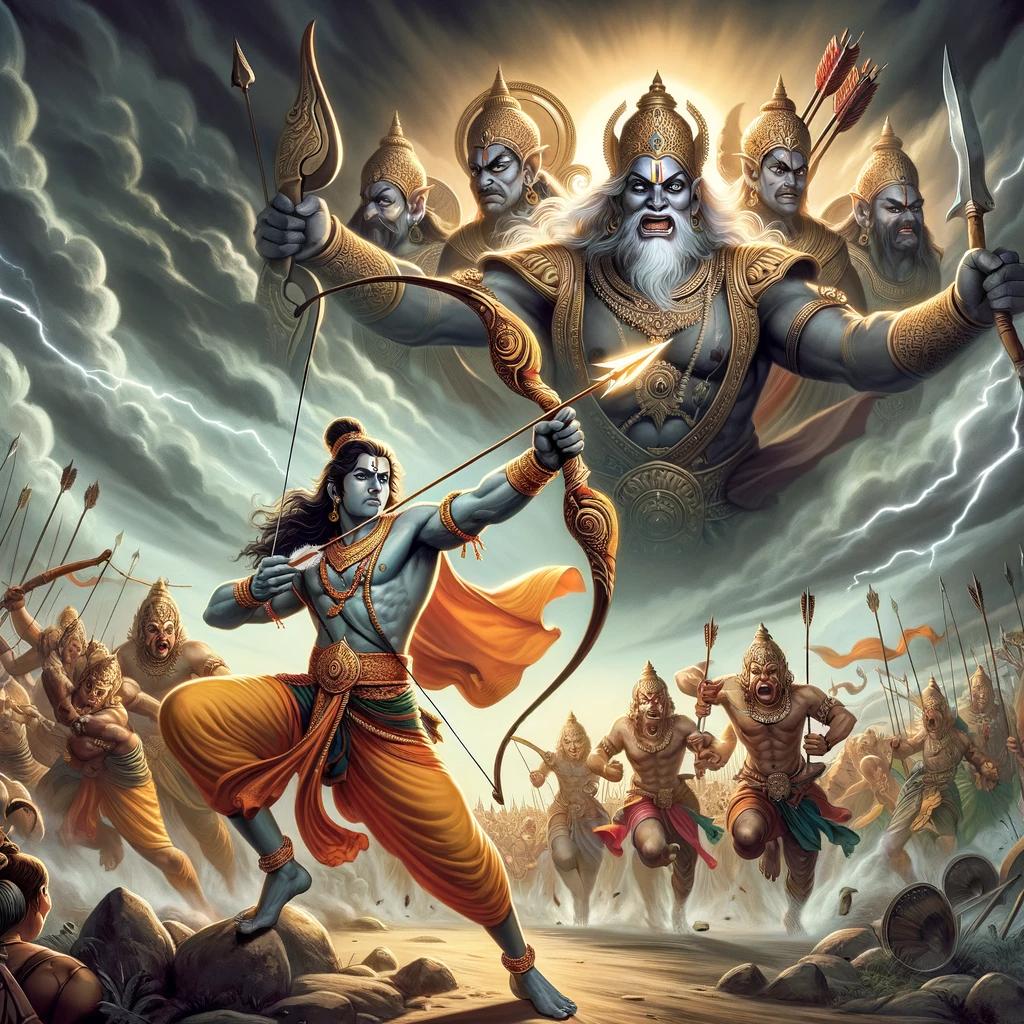
Indian Mythology Stories have fascinated generations with their rich and enchanting tales. From the ancient Indus Valley Civilization to the epic Mahabharata and Ramayana, the mythology of India has evolved and shaped its culture.
From stories of gods and goddesses to the mystical elements of the Tantric period, Indian mythology offers a diverse range of themes and types. These tales not only preserve India’s cultural heritage but also provide valuable moral lessons and inspire literature, art, and entertainment.
Join us as we delve into the captivating world of Indian Mythology Stories.
Origins and Development of Indian Mythology
The origins and development of Indian mythology span several distinct periods, each contributing to the rich tapestry of stories and beliefs that form the foundation of the culture. These periods shed light on the evolution and significance of Indian mythology throughout history, revealing its deep-rooted connections to ancient civilizations and philosophical traditions.
The Indus Valley Civilization and Mythology
The Indus Valley Civilization, one of the world’s oldest urban civilizations, holds clues to the early forms of Indian mythology. Artifacts and ancient seals depict figures with possible mythological connotations, hinting at the mythic narratives and symbols present within this ancient civilization.
Vedic Period and its Mythological Tales
The Vedic period, characterized by the compilation of the Rigveda, brought forth a complex pantheon of deities, rituals, and hymns. Vedic mythology introduced tales of gods and goddesses such as Indra, Agni, and Surya, reflecting the religious and spiritual beliefs of the time.
Brahmanic Period and the Evolution of Indian Mythology
The Brahmanic period witnessed the emergence of Brahmanism as a dominant religious system in India. During this period, intricate mythological narratives and scriptures, including the Upanishads and Brahmanas, were developed, adding layers of symbolism and metaphysics to Indian mythology.
Upanishadic Period and Philosophical Influences on Mythology
The Upanishadic period marked a shift towards philosophical explorations of the self, consciousness, and ultimate reality. Indian mythology, intertwined with profound philosophical insights found in texts like the Upanishads, began to explore deeper existential questions and mystical concepts.
Sramanic Movements and their Impact on Indian Mythology
The Sramanic movements, including Jainism and Buddhism, challenged the prevailing religious and social order during ancient times. These movements contributed to the evolution of Indian mythology by introducing new ideas, beliefs, and mythological narratives that questioned traditional Hindu practices.
Epic Period: Mahabharata and Ramayana
The epic period witnessed the composition of two iconic epics, the Mahabharata and the Ramayana. These epics not only captured the grandeur of Indian mythology but also delved into the human condition, morality, and complex characters like Rama, Krishna, and Arjuna.
Puranic Period and the Stories of Gods and Goddesses
The Puranic period marked the rise of Puranas, which presented elaborate mythological genealogies, legends, and tales of gods and goddesses like Vishnu, Shiva, Devi, and their various avatars and divine exploits.
Tantric Period and its Mystical Mythological Elements
The tantric period brought a renewed focus on esoteric practices and mystical aspects of Indian mythology. Tantra incorporated symbolic rituals, worship of goddesses, and the concept of divine energy (Shakti), giving rise to unique mythological narratives and spiritual practices.
Modern Period and the Revival of Indian Mythology
The modern period witnessed a revival of interest in Indian mythology, fueled by literary works, artistic depictions, and cultural adaptations. Comparisons with other mythological traditions and reinterpretations of ancient tales continue to shape the contemporary understanding and appreciation of Indian mythology.
Mythological Themes and Types
The captivating world of Indian mythology encompasses a wide range of themes and types that offer profound insights into the culture and beliefs of the land. Let’s explore some of these fascinating aspects:
Cosmology in Indian Mythology
In Indian mythology, cosmology delves into the origins and structure of the universe.
It presents a vibrant tapestry of creation stories, encompassing concepts like the cyclical nature of time, the multiple worlds, and the eternal cycle of birth, death, and rebirth. These myths and legends not only offer glimpses into the awe-inspiring vastness of the cosmos but also provide philosophical reflections on the interconnectedness of all existence.
Deities in Indian Mythology
Indian mythology is abundant with a pantheon of gods and goddesses, each revered for their unique characteristics and roles. These deities represent various aspects of life, including creation, preservation, and destruction.
From the Trimurti – Brahma, Vishnu, and Shiva – to the goddesses Saraswati, Lakshmi, Parvati, and Kali, the rich tapestry of deities showcases the diversity and complexity of Indian mythological beliefs.
Connections with Other Belief Systems
Indian mythology is intricately connected with various belief systems, offering profound insights into the religious syncretism of the region. Over centuries, it has absorbed influences from Buddhism, Jainism, and other ancient Indian religions, intertwining their philosophies and narratives.
These connections reflect a dynamic cultural evolution, where myths and legends serve as bridges between different belief systems, fostering understanding and unity.
In conclusion, Indian mythology’s exploration of cosmology, its vast pantheon of deities, and its connections with other belief systems make it a fascinating subject of study.
These mythological themes and types provide profound insights into the Indian culture, spirituality, and philosophy, offering a deeper understanding of the country’s vibrant heritage.
Stories from Indian Mythology
In Hindu Mythology, there are countless fascinating stories that have been passed down through generations. These stories delve into the lives, adventures, and divine manifestations of various gods and goddesses.
They capture the essence of Hindu beliefs and provide insightful teachings about moral values, righteousness, and the cosmic order. From the birth of Lord Brahma to the tales of Lord Krishna and his exploits, these stories offer a glimpse into the diverse pantheon of deities and their mythical narratives.
Stories of Vishnu and His Avatars
Vishnu, known as the preserver and protector in Hindu mythology, has ten primary avatars, or incarnations, that descend to Earth during times of crisis. Each avatar has a specific purpose and represents different aspects of existence.
From Matsya, the fish avatar who saves humanity from a great flood, to Krishna, the divine hero and enlightener of the Bhagavad Gita, these stories portray the divine interventions that Vishnu undertakes to restore balance and righteousness in the world.
Stories of Shiva and His Epics
Shiva, the cosmic dancer and the destroyer of evil, is one of the most revered deities in Indian mythology. His stories revolve around intense meditation, divine fury, and mystical transformations.
From the cosmic tandava dance to his marriage with Parvati, the mother goddess, these tales depict Shiva’s unwavering devotion, his compassion for his devotees, and his role in maintaining universal harmony.
Furthermore, his epics like the story of Daksha Yagna and the churning of the cosmic ocean highlight the complexities of his multifaceted persona.
Tales of Goddesses: Lakshmi, Parvati, and Kali
The rich tapestry of Indian mythology includes a pantheon of powerful goddesses who embody diverse qualities and virtues. Lakshmi, the goddess of wealth and prosperity, symbolizes abundance and good fortune.
Parvati, the divine consort of Shiva, represents love, devotion, and femininity. Kali, the fierce and transformative goddess, signifies destruction of evil and the triumph of righteousness. These goddesses and their captivating stories exemplify the strength, compassion, and wisdom that women possess, making them icons of reverence and inspiration.
Stories of Ganesh: The Elephant-headed God
Ganesh, the elephant-headed deity, is widely revered as the remover of obstacles and the harbinger of success and good fortune. His stories showcase his birth, his wisdom, and his adventures.
From his role as the scribe during the composition of the Mahabharata to his legendary tussle with the demon Gajamukha, these tales illustrate Ganesh’s presence in various mythological narratives and his significance in Hindu rituals and ceremonies.
Mythological Stories for Children
Indian Mythology Stories have not only captivated adult audiences but also offer a wealth of engaging and educational tales for children. These stories are carefully curated and simplified to ensure that children can easily grasp the moral lessons they convey.
From the magical adventures of Hanuman, the monkey god, to the endearing tales of Krishna’s childhood antics, these mythological stories foster a sense of cultural pride, provide valuable life lessons, and ignite children’s imaginations as they embark on unforgettable mythological journeys.
Importance and Impact of Indian Mythology
Indian Mythology holds great cultural significance and plays a vital role in preserving India’s rich heritage. These mythical tales are a treasure trove of ancient wisdom and traditions, passed down through generations.
They serve as a window into the beliefs, values, and ideals of Indian society, reflecting its deep-rooted spiritual and philosophical traditions.
Cultural Significance and Preservation of Indian Heritage
Indian Mythology acts as a vital link to India’s cultural identity. It encapsulates the diverse religious and cultural beliefs that make up the fabric of Indian society. These myths and legends are woven into everyday life, influencing festivals, rituals, art, literature, and even the architecture of ancient temples.
They provide a sense of belonging and pride, reinforcing the cultural heritage that has evolved over thousands of years.
Educational Value and Moral Lessons
Indian Mythology stories are not just ancient tales; they carry profound moral teachings and life lessons. Through these stories, children and adults alike learn about values such as righteousness, compassion, devotion, courage, and the pursuit of knowledge.
They teach us about the consequences of our actions and inspire us to strive for personal and spiritual growth. These timeless tales continue to impart wisdom and shape the moral fabric of Indian society.
Influence on Literature, Art, and Entertainment
The influence of Indian Mythology can be seen across various art forms, including literature, music, dance, and visual arts. Writers and poets draw inspiration from these mythological stories, infusing them into their literary works.
Artists depict the gods, goddesses, epic battles, and mythical creatures in intricate paintings and sculptures. Indian cinema has also embraced the rich tapestry of mythical tales, with numerous movies and TV series based on these stories captivating audiences worldwide.
The enduring influence of Indian Mythology on art and entertainment showcases its universal appeal and timeless relevance.
Indian Mythology Stories continue to captivate and inspire people, transcending time and geographical boundaries.
They embody the collective imagination and cultural heritage of a nation, leaving an indelible mark on generations past, present, and future.
.

